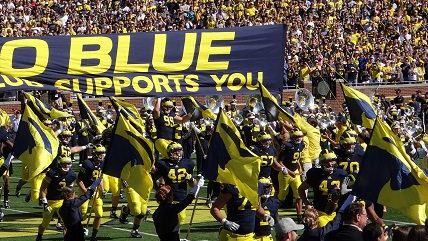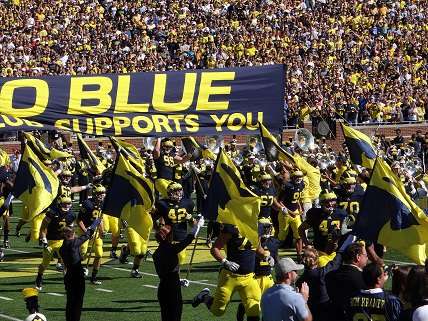Meet the Lawyer Out to Destroy the College Sports 'Cartel'


The New York Times recently published a fascinating story and Q and A with Jeffrey Kessler, a lawyer on a quest to bring down the NCAA's restrictions on paying players. The lawsuit centers squarely on how such restrictions hurt players who never see a dime of the money they earn for their schools. Kessler believes conditions are right to abolish the faux-amateurism of college sports once and for all:
[Kessler:] "Our case is directed specifically at the core restrictions that prevent schools from deciding for themselves how they want to treat their players. What we are seeking to do is remove the shackles so that the schools can decide themselves what is the fair and appropriate way to take care to their players.
If you have a school like Texas that earns close to $200 million for their football or basketball programs, you might decide it is fair to give some of that to the players who are generating the money once you are no longer stopped from doing so."
Kessler uses direct—some would say libertarian—language in his attacks on the NCAA. He considers the organization to be a criminal "cartel" that prevents schools from giving players market-based compensation:
[NYT:] In a recent decision in the O'Bannon case, the judge ruled that schools should make scholarships cover the full cost of attending, but also set up trust funds for athletes that are potentially limited to $5,000 a year. Is that a good enough result?
[Kessler:] The market should decide what's the result. If a school wants to offer $5,000 a year to their players, they can do that. And if another school wants to offer a different number, they can do that. Someone might say, "Let's put it in a trust fund." Someone else might say, "I'm going to pay through increased health benefits or insurance." Someone else might say, "I'm going to give you enhanced scholarships." That's what markets decide.
Q. In your scenario, couldn't we see schools engaging in bidding wars for teenagers?
A. The players won't get one dollar more than the markets decide they are worth. Schools will make different decisions. Some schools will not want to do this at all.
The Ivy League doesn't offer athletic scholarships — that's not going to change. The idea here is, let schools decide, let's not have a cartel decide. That's what's illegal.
The complicating factor is that colleges exist in a world filled with other market distortions that would frustrate any great sports liberation. Most obviously: State universities get some of their funding by coercing taxpayers, and even though their athletic departments are often separate financial entities, that boundary is sometimes blurred.
The best way to undue all this market confusion is to privatize the universities entirely, of course.
But it's an interesting lawsuit, nonetheless.


Show Comments (65)